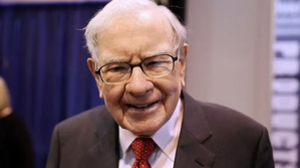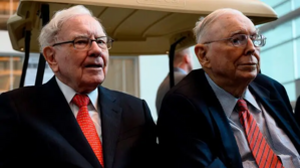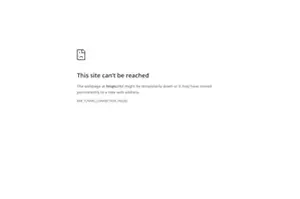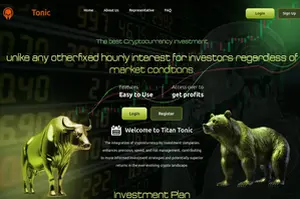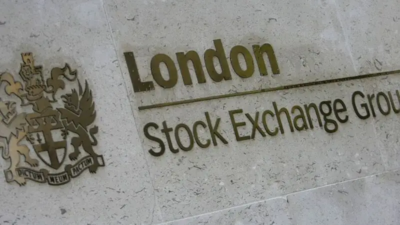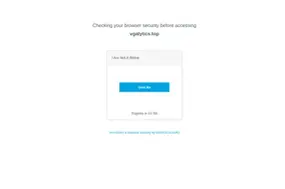Germany’s stock market just hit a new record high despite a faltering economy. What gives?
Germany’s benchmark stock index opened at an all-time high Wednesday as investors’ growing confidence that interest rates will soon be cut outweighs worries that the country may be suffering a recession.
The previous day, the DAX closed at a record high of 16,533 points — only for that peak to be beaten Wednesday when trading began. The index closed 0.7% higher on the day at 16,656 points, a new record high.
The index, comprising the 40 most valuable companies in Europe’s biggest economy, has been climbing more or less steadily since late October. At the end of that month, official estimates showed that inflation in the 20 countries using the euro had slowed sharply, hitting its lowest level in more than two years.
Price rises — which had forced the European Central Bank into an unprecedented cycle of interest rate hikes — eased further in November, reaching 2.4%.
Investors’ expectations that borrowing costs would not be raised again got a boost on Tuesday, when ECB board member Isabel Schnabel effectively ruled out further hikes, citing a “remarkable” fall in inflation. Schnabel told Reuters that the central bank is on track to bring inflation down to its 2% target, which makes “a further rate increase rather unlikely.”
Lindsay James, Investment strategist at Quilter Investors, said the DAX had been buoyed by “good news on inflation,” noting that investors now expect the ECB to start cutting rates as early as March.
Recent business surveys that suggested Europe’s economy may be bottoming out have also lifted the index, she said in a note.
A closely watched survey of purchasing managers, which tracks the eurozone’s manufacturing and services sectors, showed Tuesday that output had contracted at a slower pace in November than the previous month.
Germany’s struggling economy
Still, the stock market gains are at odds with the fragile state of the German economy, which has been underperforming other large regional economies such as France, Italy and Spain. Germany’s gross domestic product shrank by 0.1% in the third quarter, compared with the previous three-month period.
In the latest sign of the country’s troubles, provisional official data showed Thursday that industrial production in Europe’s manufacturing powerhouse dipped 0.4% in October compared with September in the fifth straight month of declines.
“This makes it increasingly likely that the German economy will also contract slightly in the fourth quarter,” Ralph Solveen, senior economist at Germany’s Commerzbank, wrote in a note, chiming with other economists.
Such a contraction would mean the country is already in a technical recession, defined as two consecutive quarters of declining output.
And, on Wednesday, official data showed that industrial orders in Germany fell 3.7% in October from the month prior, confounding economists’ forecasts for a slight rise.
German companies have also “significantly reduced their Investment plans” for this year and next, according to a survey of 5,000 firms by the Ifo Institute published Monday.
“The Investment climate has deteriorated noticeably. This is the result of higher financing costs, weak demand, and uncertainty regarding economic policy,” Lara Zarges, economic expert at the institute, wrote in a press release.
Ben Ritchie, head of developed market equities at Investment company abrdn, offers one explanation for the divergence between the DAX and the German economy. The exposure of the index’s constituents to the domestic economy is “modest,” he told CNN.
He also cited falling energy prices “supporting profitability,” as well as lower overall inflation, as additional reasons for the index’s strong recent run.
Wednesday’s gains on the DAX were led by Volkswagen, Europe’s largest carmaker, whose stock closed 5.4% higher.
The day before, the company said an independent audit of a plant it jointly owns with SAIC Motor in China had found no indications of forced labor. Volkswagen has faced criticism over the factory in Xinjiang, a region where human rights groups have documented the use of forced labor. China denies any abuses.
Maybe You Like
London Stock Exchange urged to do more to hold onto retail traders
The UK stock market needs to improve investor communication and engagement in order to retain its individual traders, according to a report from online trade and investor provider CMC Markets. ADVERTISEMENTUK retail investors are increasingly...
Hargreaves Lansdown rejects private equity takeover bid
The UK investment platform says the offer from a group including the Abu Dhabi Investment Authority undervalues the firm. ADVERTISEMENTHargreaves Lansdown has rebuffed a takeover proposal worth £4.67 billion (€5.48 billion) made...
Ferrovial set to offload UK regional airports amid Heathrow deal uncertainty
Ferrovial is planning to sell its stake in three UK regional airports amid difficulties in finalising its £2.4bn sale of a 25% stake in Heathrow. ADVERTISEMENTSpanish infrastructure company Ferrovial is reportedly putting up for sale...





